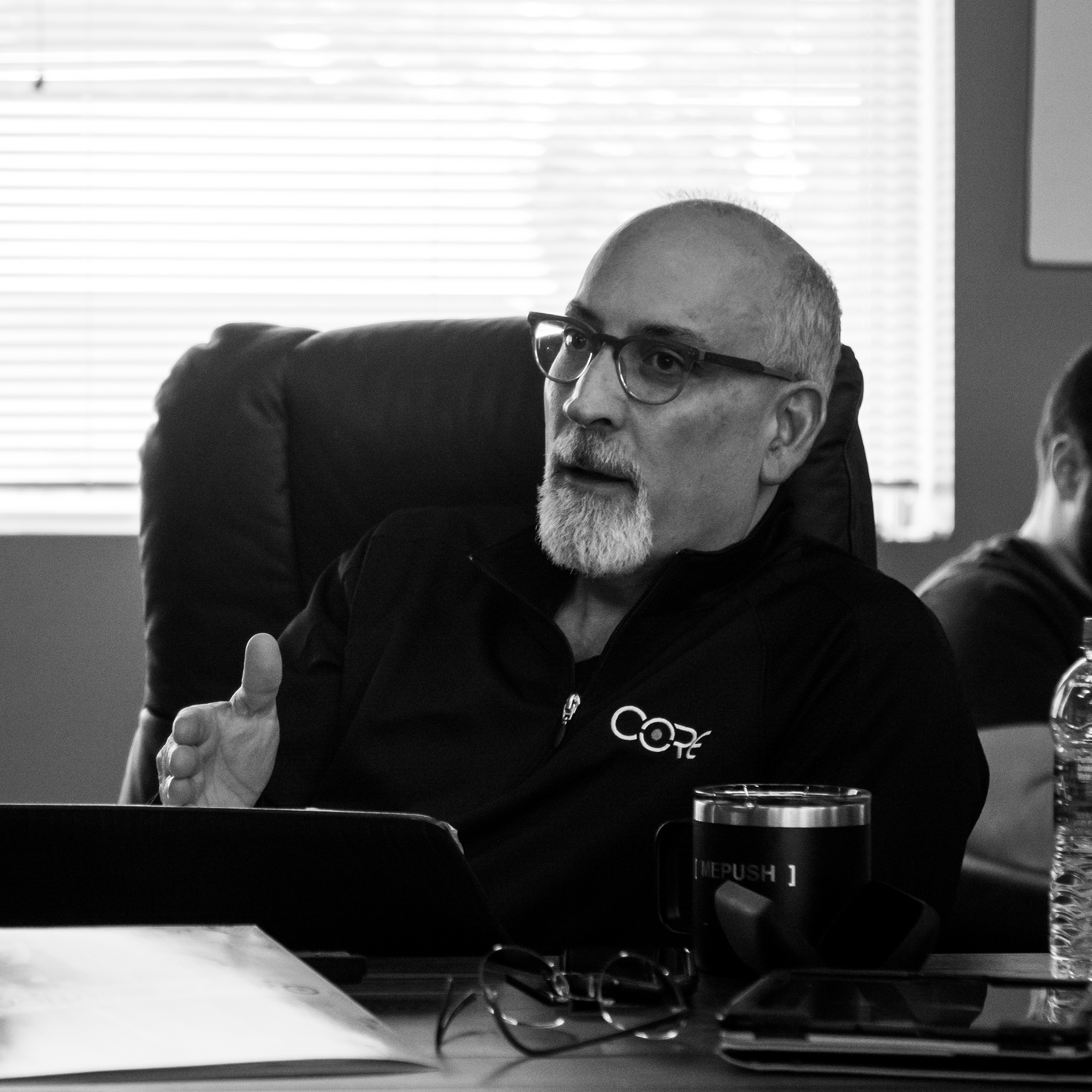ISO 9001 Certification Cincinnati OH

Local Consulting for the Cincinnati Market
ISO 9001 Quality Management System. 100% Success Rate.
Implementation with Core. 4 Steps. 4 Months. Done.
The History of Business in Cincinnati, OH: From Frontier Trading Post to Modern Economic Powerhouse
Cincinnati, Ohio, often referred to as the “Queen City”, has a storied history of business that mirrors the growth of the United States itself. From its humble beginnings as a frontier trading post to its rise as an industrial powerhouse and a modern hub for commerce, Cincinnati’s entrepreneurial spirit, strategic location, and innovative culture have shaped its business landscape over the past two centuries.
For businesses in Cincinnati, ISO 9001 certification can offer several advantages. First and foremost, it helps organizations streamline their processes, improve efficiency, and minimize waste, which can lead to cost savings and increased profitability. Additionally, ISO 9001 certification can enhance customer satisfaction by ensuring that products and services consistently meet or exceed customer expectations.
Get a Free Quote
What is ISO 9001 Certification?
ISO 9001 is a standard for quality management systems (QMS) developed by the International Organization for Standardization (ISO). ISO 9001 certification demonstrates an organization’s commitment to maintaining and improving the quality of its products or services. The standard provides a framework for establishing, implementing, and maintaining a quality management system. Certification is typically carried out by third-party certification bodies that are accredited to perform ISO 9001 audits.
Once an organization successfully demonstrates compliance with ISO 9001 requirements, it receives certification, which is usually valid for a certain period, after which surveillance audits are conducted to ensure ongoing compliance. ISO 9001 certification is widely recognized globally and can enhance an organization’s credibility, improve customer confidence, and facilitate access to new markets. Many industries and sectors, both in manufacturing and services, use ISO 9001 as a benchmark for quality management.
The Machine Tool and Manufacturing Era (1900s–1950s)
In the early 20th century, Cincinnati solidified its reputation as a hub for manufacturing and machine tools. Companies like the Cincinnati Milling Machine Company (later Milacron) became leaders in producing high-precision tools that fueled American industrial growth.
World War I and World War II further accelerated industrial activity in Cincinnati, as factories ramped up production of goods needed for the war effort, including machinery, munitions, and vehicles. The city’s workforce grew rapidly, attracting workers from rural areas and other parts of the country.
The Mid-20th Century: Corporate Expansion and Modernization
By the mid-20th century, Cincinnati transitioned from an industrial powerhouse to a center for corporate headquarters and diversified business services. Major companies, including Procter & Gamble and Kroger, continued to expand their influence globally while remaining deeply rooted in Cincinnati.
This era also saw growth in the aviation and aerospace industries, with companies like GE Aviation establishing facilities in the region. GE Aviation, still a cornerstone of Cincinnati’s economy today, produces jet engines and aerospace technology for customers worldwide.
The city’s financial sector also grew during this time, with institutions like Fifth Third Bank and other regional banks emerging as key players in the Midwest economy.
What is the Cost of ISO 9001 Certification?
The cost of ISO 9001 certification with The Core Solution, Inc. varies depending on the size and complexity of the organization. However, we offer a transparent pricing structure that is based on the number of employees in the organization. It costs between $5,700 and $15,000 to prepare and between $3,000 and $5,000 to certify, depending on the company size and how much prep time you choose to take.
In addition to the cost of certification, there are other costs associated with achieving ISO 9001 certification. These may include the cost of training employees in the requirements of the standard and the cost of conducting internal audits to ensure compliance with the standard. However, the benefits of ISO 9001 certification often outweigh the costs. ISO 9001 certification can help organizations improve their operations, reduce costs, increase customer satisfaction, and enhance their reputation.
Consulting Programs Annually
Years Helping Customers
+8,000 Customers Trust Core
Core Business Solutions Consulting in Cincinnati
Core Business Solutions is a leading provider of ISO 9001 consulting services with local consultants in Cincinnati. We work with companies of all sizes and industries in Cincinnati to help them achieve ISO 9001 Certification and improve their business processes. Core Business Solutions offers a comprehensive suite of services, including gap analysis, documentation development, training, and internal auditing.
What it’s like Working with Core Business Solutions
Joe B with AMR Plastics had a great experience with one of our ISO 9001 consultants, Ty Elliott. Ty was able to help them prepare for their audit and feel more comfortable and confident when it came time for the audit. Joe further stated that Mr. Elliott led them on a path with patience and knowledge.
Achieving ISO 9001 certification can be a difficult task. Still, with the help of a knowledgeable and experienced consultant like Ty and the resources provided by Core Business Solutions, the process can be much easier. ISO Certification not only demonstrates a commitment to quality and customer satisfaction, but it can also improve business processes and increase efficiency, leading to greater success and profitability.

So, How do You get ISO 9001 Certification? Here are the Steps:
Step 1: Develop a Quality Management System
The first step in getting ISO 9001 Certification is to develop a Quality Management System that meets the requirements of the standard. This involves identifying the processes and procedures that are necessary to manage your organization’s operations and improve quality control. You’ll need to document these processes and procedures and ensure that they’re tailored to your organization’s specific needs.
Step 2: Implement the Quality Management System
Once you’ve developed your QMS, it’s time to implement it throughout your organization. This involves training employees in the new processes and procedures and making sure everyone understands their role in the QMS. You’ll also need to integrate the QMS into your overall business processes to ensure that it’s functioning effectively.
Step 3: Conduct an Internal Audit
Before seeking certification, you’ll need to conduct an internal audit to make sure that your QMS is functioning effectively. This involves reviewing your processes and procedures to identify any areas that need improvement and making changes as necessary.
Step 4: Select a Certification Body
Once you’re confident that your QMS is functioning effectively, it’s time to select a certification body to conduct an external audit. This involves choosing an accredited certification body that will conduct a thorough review of your QMS to ensure that it meets the requirements of the ISO 9001 standard.
Cincinnati’s Business Landscape Today
Today, Cincinnati is a diverse and thriving business hub. Its economy reflects a blend of old and new industries:
Consumer Goods:
P&G and Kroger continue to lead the consumer goods sector, shaping global markets from their Cincinnati headquarters.
Aerospace and Advanced Manufacturing:
Companies like GE Aviation drive innovation in aerospace, while smaller manufacturers focus on precision technologies.
Healthcare and Biotech:
Cincinnati has become a leader in healthcare innovation, with organizations like Cincinnati Children’s Hospital and biotech startups pushing new advancements.
Financial Services:
Regional banking giants like Fifth Third Bank provide economic stability and drive growth.
Entrepreneurship and Startups:
Cincinnati’s startup ecosystem thrives in industries like tech, food, and consumer goods. Programs like Cintrifuse and The Brandery support entrepreneurial growth.


Improve your Chances in a Competitive Market
In Cincinnati’s competitive business landscape, ISO 9001 certification can serve as a differentiator, demonstrating a commitment to quality and continuous improvement. Certified businesses may enjoy a competitive edge over non-certified competitors, positioning themselves as preferred suppliers or service providers.
ISO 9001 Certification Cincinnati, OH
A Legacy of Resilience and Innovation
The history of business in Cincinnati is a testament to the city’s resilience, adaptability, and innovative spirit. From its early days as a trading post and pork-packing capital to its current role as a center for global corporations, advanced manufacturing, and entrepreneurship, Cincinnati continues to evolve and thrive.
As the city looks to the future, it remains committed to fostering innovation, supporting small businesses, and maintaining its status as an economic powerhouse in the Midwest. Cincinnati’s business legacy—built on hard work, ingenuity, and community—ensures it will remain a dynamic force for generations to come.

